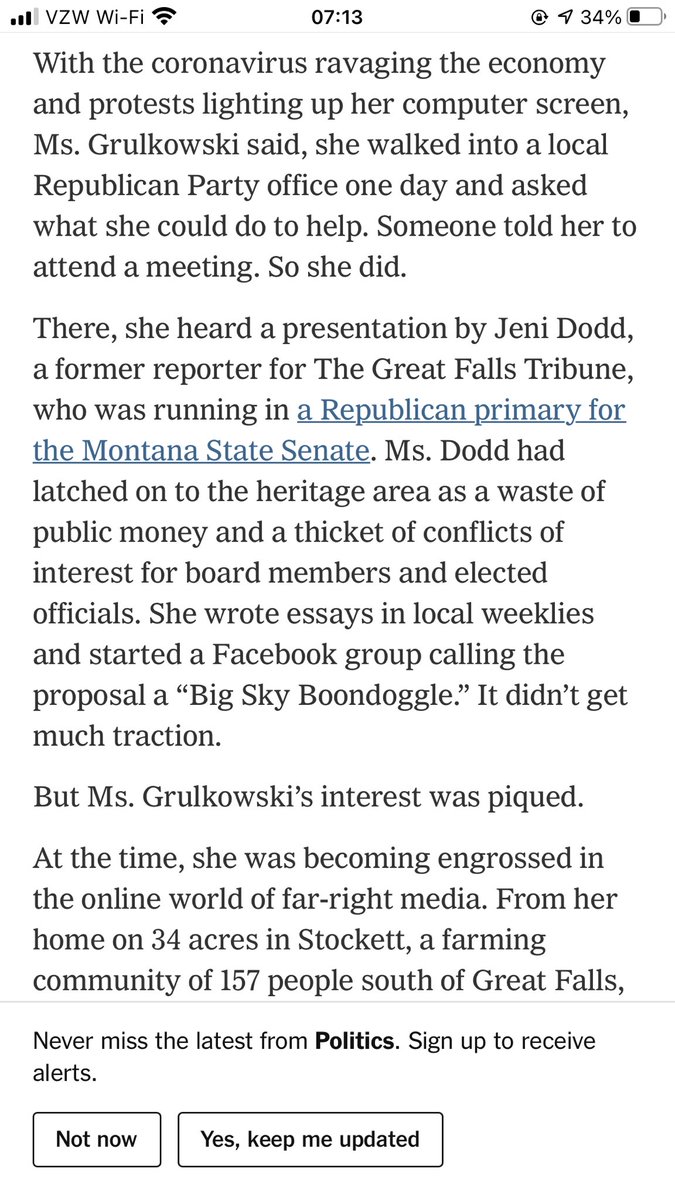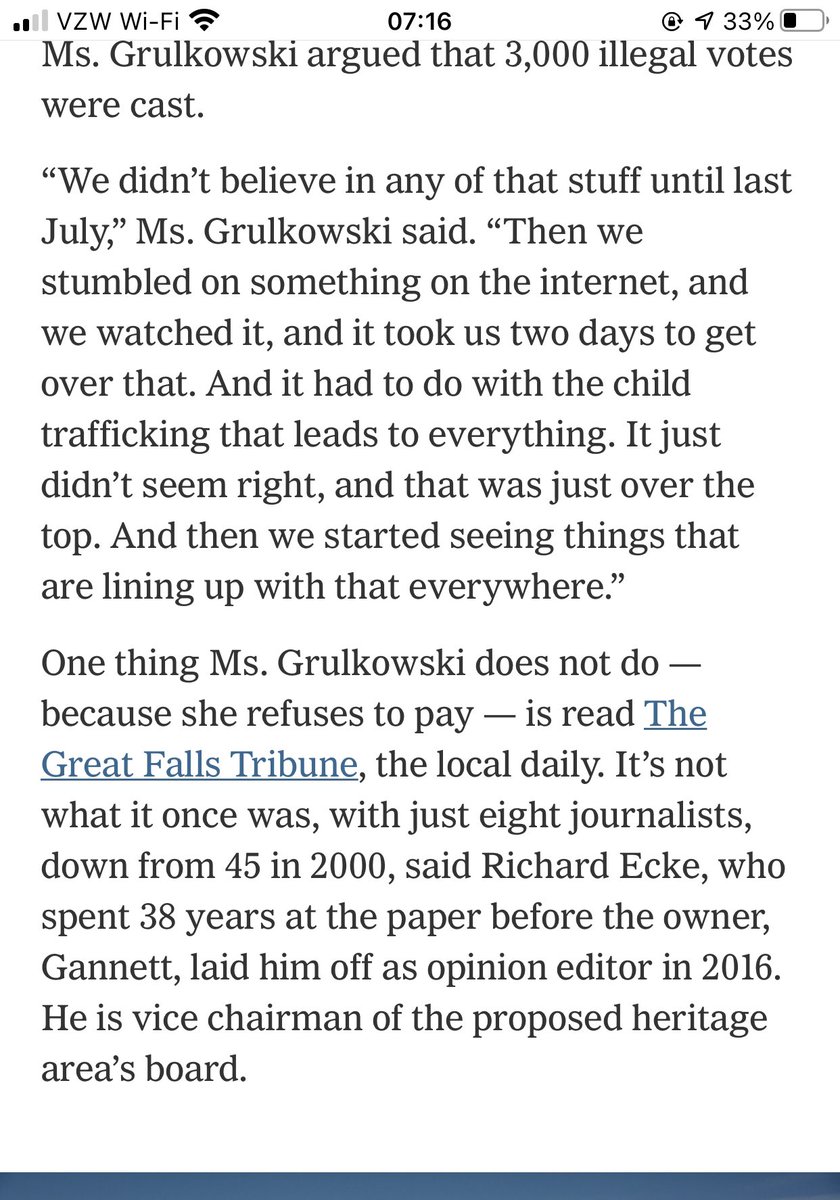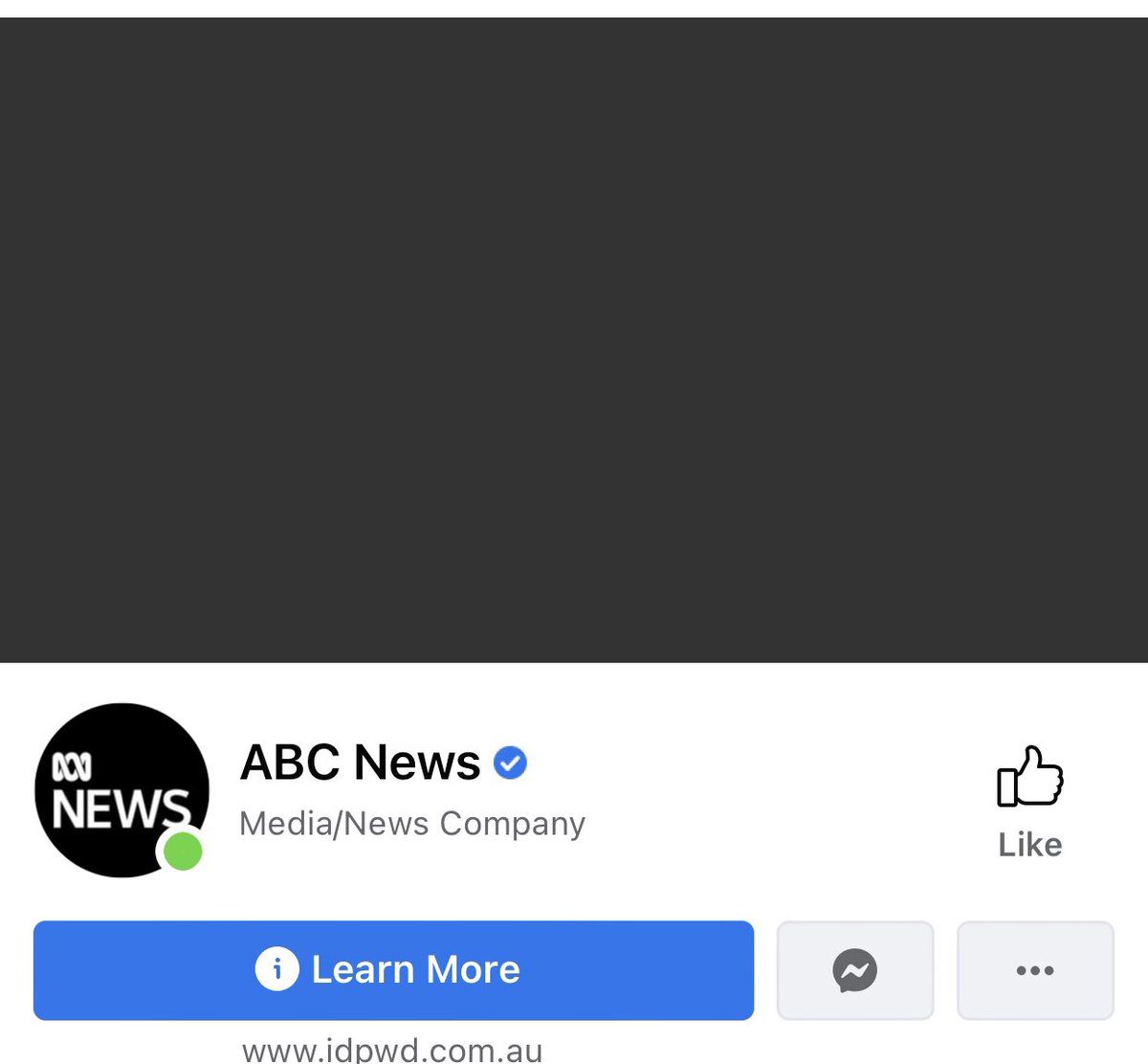
A mind-boggling case in Montana of how disinformation is a new playbook at local level. The thinned down local newspaper is no match for a barrage of nonsense on the Internet nytimes.com/2021/10/24/us/…
The recession in local journalism, the growth of campaigning Facebook groups; any wedge issue can turn an electorate if swaddled in enough untruths 



The Great Falls Tribune, once had 45 journalists now it has eight
This piece should be read as a companion piece with the #FacebookFiles coverage. Whilst it is not *only* Facebook’s fault that you can run a campaign in Montana based on totally spurious assertions, it shows why the effects of platform disruption require wholesale reform
• • •
Missing some Tweet in this thread? You can try to
force a refresh







